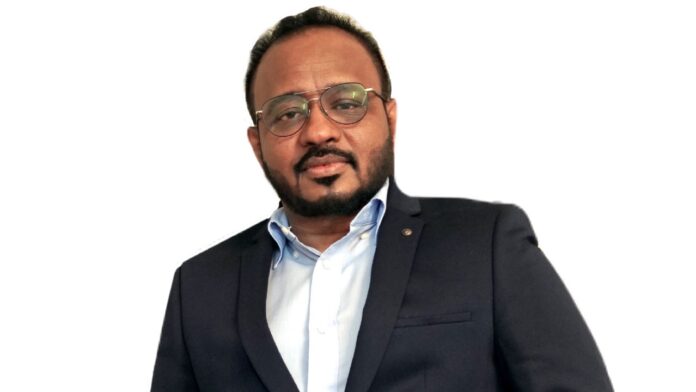Dr B Kalyan Chakravarthy, IAS, Principal Secretary, Skill Employment & Entrepreneurship, Department and Labour, Government of Assam speaks to T P Venu & Sudheer Goutham on Assam’s growth trajectory and efforts by the department to skill and arm the youth of Assam for a better life
What are the three major initiatives taken by Government to improve skilling?
The most significant development has been towards scientific education. The emphasis has been on fostering critical thinking. We have associated with IITs and Higher Education institutions. Training teachers in scientific education is another area that the Government is keen on. The students of Assam have been engaged in Social Sciences and we feel a balance has to be struck.
The Government of India and Assam Government have laid a lot of emphasis on digitization. The administration has been effective which has led to pedagogy becoming digital and we were able to stream in devices in classrooms.
Implementing the National Education Policy (NEP) 2020 is a priority with great importance given to vocational education. A good number of young men and women are not employable and there is a perception that skilling as an alternative career is for people with lesser aspirations. It is basically a mindset issue and we are working to change this perception.
Tell us about the youth in Assam
We in India speak of the demographic dividend and the opportunity to rise economically in the comity of nations. The average age in India is 26 years as opposed to Assam which is at least four years less. It is a huge challenge and also an opportunity to arm them with skills. It is a demographic opportunity and it is in our hands to not to turn it into a demographic disaster.
What are the plans to introduce technology in the education stream?
The education landscape is changing very fast and there is a tectonic shift. After the industrial revolution there was a huge difference in Europe which resulted in a gap between haves and have-nots. Today, with the advent of Artificial Intelligence revolution there would be profound impact on several sectors.
Digital education will help in acquiring jobs. Skilling has to start from Class 6 onwards. The Government has in place a framework to upgrade the vocational institutions and as part of modernization, all polytechnics. The expansion of ITIs in every block is a priority.
There will be awareness programmes to make people understand about dignity of labour and make vocational courses aspirational. There will be a block youth officer in every block to analyse who needs training. The youth will be trained and collaborations with the industry will forged. Under project Arohan, a mentorship programme, meritorious students will guide the student fraternity in all aspects including career counseling will provide guidance to students and hone their skills.
What are the efforts to promote entrepreneurship?
It is an ability to invest in an idea. One needs to be ready to fail as well. It is an attitude. We plan to establish an entrepreneur cell in every college. After a prolonged period of insurgency, now there is some semblance of peace in the state. The youth are on the cusp of development.
Unlike the rest of the country, Assam is not burdened with problems that other states have; for instance with regards to women empowerment. Historically, women have been in the forefront and women here are empowered.
The most significant development has been towards scientific education. The emphasis has been on fostering critical thinking
Tell us about the recently concluded Y 20 and how it was useful for the youth
The event was a huge success with participation of close to 10,000 youths from colleges in Assam as well as 21 foreign and 200 Indian delegates sharing their ideas for a better tomorrow and draft an agenda for action on five themes, including Future of Work: Industry 4.0, Innovation, and the 21st Century; Climate Change and Disaster Risk Reduction: Making Sustainability as a Way of Life; Peace Building and Reconciliation: Ushering in an Era of No War; Shared Future:
Youth in Democracy and Governance; and Health, Well-Being & Sports: Agenda for Youth. Assam managed to tackle insurgency by peace and reconciliation and not by force.
The youth’s aspirations and role in governance needs to be increased. There is a need to adapt to the changes in terms of technology, green jobs, climate equity. We presented our perspective at the G20.
Skilling is intrinsically interlinked with the overall economy and Assam is the gateway to South East Asian nations. What do you foresee in terms of engaging with these nations and the opportunities that would unfold for youth in the North East and particularly for Assam?
The Prime Minister Narendra Modi said that the North East is the place for the future and will grow multi-fold. The potential of Assam to increase multimodal connectivity and regional trade with the Association of Southeast Asian Nations (ASEAN) as well as Bangladesh, Bhutan and Nepal. The India-Myanmar-Thailand Trilateral Highway provides the land route to Assam to connect to Myanmar and onward to Thailand, Malaysia and Singapore. In the coming years, the opportunities for the youth in the North Eastern Region will be so huge that skilling them for the future is the responsibility today.
We are working towards student, faculty and knowledge exchange with foreign institutions and industry driven internship and placement program.








